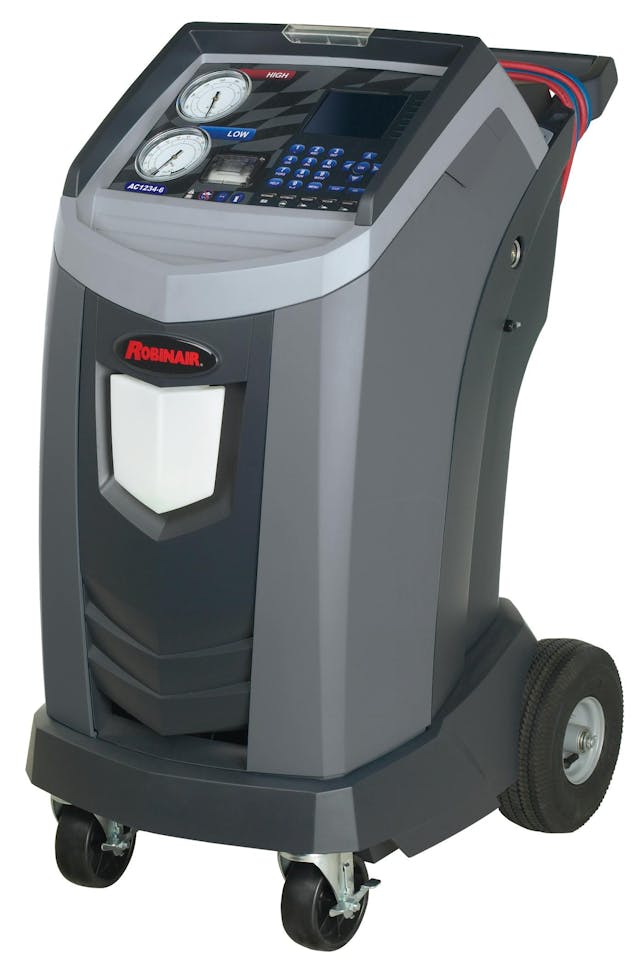
Best AC Car Freon Types for Maximum Cooling. When it comes to keeping your car cool on those scorching summer days, nothing is more important than a well-functioning air conditioning system. At the heart of this system lies the magic ingredient: AC Car Freon. This refrigerant plays a critical role in ensuring that the cooling process is efficient, reliable, and environmentally friendly. In this article, we will explore the various types of AC Car Freon available in the market today, how they differ, and what factors to consider for achieving maximum cooling performance—all presented in a friendly and informative tone.
AC Car Freon: Understanding the Basics
AC Car Freon is a refrigerant that circulates through your car’s air conditioning system, absorbing heat from the interior and expelling it outside, resulting in a cool and comfortable ride. Originally, the term “Freon” was used to describe a specific family of refrigerants produced by a major company, but today it has become a catch-all term for any refrigerant used in car AC systems. With the rising demand for eco-friendly solutions and higher cooling efficiency, understanding the different types of AC Car Freon and their specific applications is essential for any car owner.
When the refrigerant is compressed, it heats up and then dissipates the absorbed heat as it passes through the condenser. After cooling down, the refrigerant expands, which lowers its temperature significantly, allowing it to absorb more heat from the vehicle’s cabin. This cycle continues as long as the AC system is running. This basic yet ingenious process highlights why choosing the right AC Car Freon can be the difference between a mediocre cooling system and one that provides maximum cooling performance.
AC Car Freon: The Importance of Optimal Cooling Performance
Your car’s air conditioning system isn’t just about comfort—it also plays a crucial role in ensuring that you have clear visibility (by preventing fogging) and a safe driving experience during extreme weather. The performance of the AC system is largely dependent on the type of AC Car Freon used. Different refrigerants have varying thermodynamic properties, which affect factors such as cooling capacity, energy efficiency, and environmental impact. (Read More: Eco-Friendly Car Air Fresheners: The Best Sustainable Options in 2024).
An optimal AC Car Freon not only keeps the interior cool but also contributes to the overall efficiency of the system by reducing the workload on the compressor. When the refrigerant is perfectly matched to your vehicle’s AC design, it can lower the operating pressure and minimize wear and tear on the mechanical components. This careful balance between cooling performance and system durability makes the selection of the right AC Car Freon a topic worth exploring in detail.
AC Car Freon: Exploring Different Freon Types
Over the years, advancements in technology and stricter environmental regulations have led to the development of multiple types of AC Car Freon. While older refrigerants like R12 have been phased out due to their harmful effects on the ozone layer, newer alternatives have taken their place, each with its own set of advantages and challenges. Today, the most commonly used refrigerants in automotive AC systems include R134a and R1234yf.
R134a has long been the go-to choice for most vehicles manufactured in the 1990s and early 2000s. Its excellent cooling properties and availability made it the standard for many years. However, as environmental concerns have grown, the search for more sustainable options has given rise to alternatives like R1234yf. Each type of AC Car Freon offers unique characteristics that can influence cooling performance, system compatibility, and long-term maintenance requirements. (Read More: The Science Behind Car Air Fresheners: How Scents Affect Your Driving Experience).
AC Car Freon: R134a – The Modern Standard
R134a has earned its reputation as the modern standard for automotive air conditioning systems. Its widespread use in cars around the world has made it a familiar name among both mechanics and car owners. R134a is known for its efficient heat absorption capabilities and a relatively stable performance across a range of operating conditions. This reliability ensures that your car’s AC system remains effective even when the temperature outside is soaring.
The popularity of R134a is also supported by its compatibility with a wide variety of vehicle models. Whether you’re driving an older sedan or a modern crossover, chances are that R134a has been engineered to work seamlessly within your system. With an emphasis on performance and accessibility, this type of AC Car Freon continues to be a favorite choice for those who value consistency and proven results. (Read More: Top 5 Car Air Fresheners for a Long-Lasting Fresh Ride in 2024).
AC Car Freon: R1234yf – The Eco-Friendly Option

As environmental regulations become more stringent and the need for sustainable solutions grows, R1234yf has emerged as a viable alternative to R134a. Engineered to have a significantly lower global warming potential, R1234yf is considered to be a more eco-friendly option. This refrigerant provides similar cooling performance while minimizing the environmental footprint, making it a strong contender for the future of automotive air conditioning.
Though R1234yf tends to be more expensive than its predecessor, many car manufacturers are increasingly adopting this refrigerant in new models. The move toward R1234yf reflects the industry’s commitment to reducing greenhouse gas emissions without sacrificing cooling efficiency. For drivers who are conscious of both performance and environmental impact, choosing an AC Car Freon like R1234yf represents a thoughtful balance between innovation and responsibility.
AC Car Freon: Performance Comparison and Considerations
When comparing different types of AC Car Freon, several factors come into play. Cooling efficiency, operating pressure, chemical stability, and environmental impact are among the primary considerations. R134a has a long-standing reputation for consistent performance, while R1234yf offers a greener alternative with similar capabilities. The choice between these refrigerants often comes down to the specific requirements of your vehicle’s AC system and your personal priorities regarding cost and environmental impact.
Performance comparisons between these refrigerants reveal that both offer substantial cooling benefits. However, slight differences in energy consumption and cooling speed might be noticeable under certain conditions. For instance, while R134a might provide a marginally faster cooling effect in extremely hot environments, R1234yf’s lower environmental impact and compatibility with newer systems are increasingly attractive factors. This detailed analysis underscores the importance of understanding your vehicle’s needs when selecting an AC Car Freon.
Another point to consider is the ease of maintenance and availability of servicing options. R134a has been in use for a long time, meaning that most repair shops are well-versed in handling it. On the other hand, as R1234yf becomes more prevalent, more technicians are becoming trained in its specific servicing requirements. Both types of AC Car Freon have their own sets of advantages that cater to different user needs, ensuring that every driver can find a solution that best matches their expectations for maximum cooling performance.
AC Car Freon: Maintenance Tips for a More Efficient System

Proper maintenance of your car’s AC system is crucial to ensure that your AC Car Freon performs optimally over time. Regular checks and professional servicing can prevent common issues like leaks and compressor malfunctions. One of the most important tips is to have your system inspected annually by a qualified technician who can assess the refrigerant levels and check for any potential leaks.
Keeping an eye on the performance of your air conditioning system is also essential. If you notice a decline in cooling efficiency or unusual noises when the AC is running, it might be time to have your refrigerant levels checked or consider a refill. It is important to use the correct type of AC Car Freon specified by your vehicle’s manufacturer, as using the wrong refrigerant can lead to decreased performance and potential damage to the system.
Another maintenance tip involves cleaning or replacing the cabin air filter regularly. A clogged filter can reduce airflow, causing the AC system to work harder and reducing overall cooling performance. Simple steps like these help extend the lifespan of your air conditioning components and ensure that the AC Car Freon is able to work at its maximum potential every time you turn on the system.
AC Car Freon: Expert Insights and User Experiences
Car enthusiasts and professional mechanics alike agree that choosing the right type of AC Car Freon can significantly impact the overall performance of your vehicle’s air conditioning system. Many experts recommend paying close attention to the specific needs of your car model when deciding between refrigerants like R134a and R1234yf. User experiences further illustrate that even small differences in refrigerant properties can translate into noticeable improvements in cooling efficiency and system longevity.
Interviews with several automotive technicians reveal that many of them have observed improved system performance when switching to an eco-friendly AC Car Freon option in newer models. These experts point out that as car technology evolves, so does the need for advanced refrigerants that not only offer better cooling but also adhere to stricter environmental standards. Conversations with car owners indicate that regular maintenance, combined with the use of the appropriate refrigerant, can lead to a more comfortable driving experience even during the peak of summer.
Feedback from users also emphasizes the importance of having a reliable source for your AC Car Freon. Whether you’re opting for R134a or R1234yf, sourcing the refrigerant from a reputable supplier ensures that you receive a product that meets industry standards and performs as expected. This level of care and attention to detail is what separates a well-maintained AC system from one that struggles under extreme conditions.
AC Car Freon: Future Trends in Car Air Conditioning Technology

The world of automotive air conditioning is continuously evolving, and the future of AC Car Freon looks promising. Innovations in refrigerant chemistry and system design are paving the way for even more efficient cooling solutions. As the automotive industry shifts toward greener technologies and electric vehicles, the demand for refrigerants that are both efficient and environmentally responsible is set to grow.
Research and development in this field are focusing on reducing the global warming potential of refrigerants while maintaining, or even enhancing, their cooling capabilities. The trend toward using alternative refrigerants like R1234yf is just the beginning. Future advancements may include refrigerants with even lower environmental impacts and improved energy efficiency, ensuring that your car’s air conditioning system will continue to provide maximum cooling performance for years to come.
The continuous evolution in AC Car Freon technology reflects a broader shift in automotive design, where comfort, efficiency, and environmental stewardship go hand in hand. Staying informed about these developments can help you make better choices when it comes to servicing your vehicle’s air conditioning system and selecting the right refrigerant to keep you cool on every journey.
Maintaining an open dialogue with automotive experts and keeping up with the latest trends in refrigerant technology can be both informative and empowering. With the increasing emphasis on sustainability in the automotive industry, every driver can benefit from understanding how AC Car Freon works and the role it plays in achieving the ultimate cooling experience.
By exploring the various types of AC Car Freon and paying attention to regular maintenance, you can ensure that your car’s AC system remains efficient and reliable, providing you with refreshing comfort no matter how high the mercury rises.




